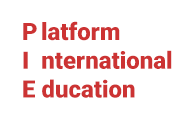NWO
Deadline: October 15th, 2024 (pre-proposal) & May 13th, 2025 (full proposal)
Grant: €1,400,000
Consortia with researchers from CGIAR Research Centres, Sub-Saharan African knowledge institutes and Dutch knowledge institutes (including universities of applied sciences), as well as stakeholders from National Agricultural Research and Extension Services (NARES) and cooperation partners from local/regional/national governments are invited to submit a research proposal to the Dutch research council (NWO).
Consortia with researchers from CGIAR Research Centres, Sub-Saharan African knowledge institutes and Dutch knowledge institutes (including universities of applied sciences), as well as stakeholders from National Agricultural Research and Extension Services (NARES) and cooperation partners from local/regional/national governments are invited to submit a research proposal to the Dutch research council (NWO).
Consortia with researchers from CGIAR Research Centres, Sub-Saharan African knowledge institutes and Dutch knowledge institutes (including universities of applied sciences), as well as stakeholders from National Agricultural Research and Extension Services (NARES) and cooperation partners from local/regional/national governments are invited to submit a research proposal to the Dutch research council (NWO).
Purpose
This call aims to enable scaling-up of soil moisture retention practices among smallholder farmers in rainfed agri-food systems* and as such helps to mitigate negative effects from increased severity of dry spells on agricultural production.
The specific objectives are:
- Gain insights in the socio-economic barriers and opportunities in the enabling environment for scaling of water retention practices with a changing climate;
- Gain insights in and provide options for governance functions and governance attributes that support scaling-up of moisture retention practices;
- To strengthen cooperation among CGIAR researchers, Dutch researchers and local partners.
Consortia can choose whether to focus on either the first or the second objective, always in combination with the third objective, or to focus on all three objectives at the same time.
*rainfed agri-food systems include: cropping systems, mixed farming systems (e.g. with food-fodder-livestock) and pastoralist systems.
Who can apply
Pre-proposals and full proposals are to be submitted by the main applicant on behalf of the consortium.
There are four categories of participants within a consortium: 1. Main applicant; 2. Co-applicant(s); 3. Cooperation partner(s); 4. Co-funder(s) (optional).
A consortium should consist of at least:
- A member of the research staff of a CGIAR research centre – as main or co-applicant;
- A researcher from a Dutch knowledge institute – as main or co-applicant;
- A researcher from a knowledge institute from the country where the research takes place – as co-applicant;
- A stakeholder from a governmental organisation from the country where the research takes place – as cooperation partner.
The conditions for each type of participant are explained in more detail in Section 3.1.1 and 3.1.2 of the Call for proposals.
Read more about this opportunity here.

